The Devil's star hh-5 Read online
Page 8
‘It doesn’t mean your wife hasn’t been here,’ Ivan said. ‘In a busy street with traffic and a lot of people around it’s difficult to isolate the scent of one person.’
Harry looked around him. He had the feeling that he was being observed, but the street was deserted, and all he saw in the windows of the row of house fronts was a dark sky and sun. An alkie’s paranoia.
‘Well,’ Harry said. ‘Then there’s nothing more we can do for the moment.’
Wilhelm stared at them in despair.
‘It’ll be alright,’ Harry said.
‘No, it won’t be alright,’ Wilhelm answered in the same flat voice that radio weather forecasters use.
‘Come here, Ivan!’ the police officer shouted, jerking the lead. The dog had stuck its nose under the front bumper of a VW Golf parked close to the kerb.
Harry gave Wilhelm a pat on the shoulder and avoided his intense stare.
‘All the patrol cars have been informed. If she doesn’t turn up before midnight, we’ll organise a search party. OK?’
Wilhelm did not answer.
Ivan barked at the Golf and pulled on his lead.
‘Wait a moment,’ the policeman said.
He went down on all fours, put his head close to the tarmac and stretched out an arm under the car.
‘Found anything?’ Harry asked.
The officer turned round. He was holding a lady’s high-heeled shoe. Harry heard Wilhelm sob behind him and asked: ‘Is this her shoe, Wilhelm?’
‘It won’t be alright,’ Wilhelm said. ‘It won’t be alright.’
10
Thursday and Friday.
Nightmares.
On Thursday afternoon a red mail van stopped outside a post office in Rodelokka. The contents of the postbox were emptied into a sack, eased gently into the back of the van and driven to the mail centre at Biskop Gunnerus gate 14, better known in Oslo as the Post House. The same evening, at the mail centre, the post was sorted by size and so the brown padded envelope ended up in a tray with other letters of C5 format. The envelope passed through several pairs of hands, though naturally enough no-one paid any special attention to it, nor when it was sorted by geographical area and was put first in the Ostland tray and then in the tray for postcode 0032.
When the letter finally lay in a post sack in the back of a red van ready for delivery the following morning, it was nighttime and most people in Oslo were sleeping.
‘It’ll be fine,’ the boy said, patting the round-faced girl on the head. He felt her long, thin hair stick to his fingers. It was electric.
He was eleven years old. She was seven and his little sister. They had been visiting their mummy at the hospital.
The lift arrived and they opened the door. A man wearing a white coat pushed the grille to one side, gave them a fleeting smile and left. They entered the lift.
‘Why is it such an old lift?’ the girl asked.
‘Because it’s an old house,’ the boy said, pulling the grille closed.
‘Is it a hospital?’
‘Not exactly,’ he said, pressing the button for the ground floor.
‘It’s a house for people who are very tired to rest a little.’
‘Is Mummy tired?’
‘Yes, but she’ll be fine. Don’t lean against the door, Sis.’
‘What?’
The lift started with a jerk and her long blonde hair moved. Electricity, he thought, and stared as the hair on her head slowly rose. Her hands shot up to her head, and she screamed. A thin, piercing scream that fixed him to the spot. Her hair was trapped on the other side of the grille. It must have been caught in the lift door. He tried to move, but it was as if he was stuck, too.
‘Daddy!’ she screamed and stood on the tips of her toes.
But Daddy had gone ahead to collect the car from the car park.
‘Mummy!’ she screamed as she was pulled off the lift floor. But Mummy lay in bed with a pallid smile on her face.
She kicked out wildly while clinging to her hair. If only he could move.
‘Help!’
Harry sat up in bed with a start. His heart was beating like a bass drum gone wild.
‘Christ.’
He heard his own hoarse voice and let his head fall back on the pillow.
The light in the crack between the curtains was grey. He peered over to the red digital figures on his bedside table: 4.12. The summer nights were hell. The nightmares were hell.
He swung his legs out of bed and went to the lavatory. The urine splashed into the water as he stared into the distance. He knew he wouldn’t be going back to sleep.
The fridge was empty apart from a bottle of low-alcohol beer that had ended up in his shopping basket because his vision had been blurred. He opened the cupboard over the sink unit. An army of beer and whisky bottles stood to attention and eyed him in silence. All empty. In a sudden fit of rage he knocked them flying and heard them clattering long after he had closed the cupboard doors. He checked the time again. It was Friday morning. The Vinmonopol did not open for another five hours.
Harry sat down by the telephone in the sitting room and rang Oystein Eikeland’s mobile phone number.
‘Oslo Taxis.’
‘What’s the traffic like?’
‘Harry?’
‘Good evening, Oystein.’
‘Is it? Haven’t had a punter for half an hour.’
‘Holiday time.’
‘Don’t I know it! The owner’s gone off to his log cabin on Kragero and has left me driving Oslo’s deadest deadmobile. And in the deadest town in Northern Europe. It’s as if someone’s dropped a bloody neutron bomb.’
‘Thought you didn’t like to sweat too much on the job.’
‘Hah, I’m sweating like a pig. The tightfisted bastard buys cars without air conditioning. I have to drink like a bloody camel after shifts just to replace the liquid I’ve lost. And that costs an arm and a leg. Yesterday it cost me more than I had scraped together all day.’
‘I’m genuinely sorry to hear that.’
‘Should have stuck to cracking codes.’
‘Hacking you mean? That got you booted out of Den Norske Bank and a six-month suspended sentence?’
‘Right, but I was good at it. Whereas this… By the way, the owner’s thinking of cutting down on the hours he drives, but I’m already driving twelve-hour shifts and you can’t find new taxi drivers any more. You don’t fancy doing a bit, do you, Harry?’
‘Thank you, I’ll think about it.’
‘What are you after?’
‘I need something to make me sleep.’
‘Go to the doctor.’
‘I did. He gave me Imovane, some sleeping tablets. They didn’t work. I asked for something stronger, but he refused.’
‘Never a good idea to have the smell of booze on your breath when you go asking your GP for some Rohypnol, Harry.’
‘He said I was too young for strong medications. Have you got any?’
‘Rohypnol? Are you crazy? It’s illegal, isn’t it? But I’ve got Flunipam. Same sort of stuff. Half a tablet and you’ll go out like a light.’
‘OK. I’m a bit short of cash at the moment, but you’ll get the money at the end of the month. Does it get rid of dreams, too?’
‘Eh?’
‘Will it stop me dreaming?’
The line went quiet for a moment.
‘Do you know what, Harry? Now that I think about it, I’ve run out of Flunipam. On top of that, it’s dangerous stuff. And it won’t stop you dreaming, more the opposite.’
‘You’re lying.’
‘Maybe, but Flunipam is not what you need, anyway. Try taking it easy, Harry. Have a break.’
‘Have a break? I don’t have breaks. You know that.’
Harry could hear someone opening the taxi door and Oystein telling them to go to hell. Then his voice was there again.
‘Is it Rakel?’
Harry didn’t answer.
‘Have you had a row
with Rakel?’
Harry could hear a crackling noise and guessed Oystein was listening to the police channel.
‘Hello! Harry! Can’t you answer when a childhood friend asks you if the foundations of your existence are still in place?’
‘They aren’t,’ Harry mumbled.
‘Why not?’
Harry took a deep breath.
‘Because I practically forced her to dig them up. Something I was working on for a long time fell apart and I couldn’t come to terms with it. I went on a bender and festered in my own shit for three days without answering the phone. On the fourth day she came round and rang the bell. At first she was furious. She said that I couldn’t just run away, that Moller had been asking after me, and then she stroked my face. She asked me if I needed help.’
‘And knowing you as I do, you showed her the door or something like that, right.’
‘I said I was fine. Then she went all miserable.’
‘Obviously. The girl’s fond of you.’
‘That’s what she said, but she also said that she couldn’t go through it again.’
‘Go through what again?’
‘Oleg’s father’s an alkie. It was destroying all three of them.’
‘And you answered?’
‘I said she was right, and that she should keep away from people like me. She pulled a face. Then she left.’
‘And now you have nightmares?’
‘Yes.’
Oystein breathed a heartfelt sigh.
‘Do you know what, Harry? There’s nothing that can help you through this. Well, there is one thing.’
‘I know,’ Harry said. ‘A bullet.’
‘You yourself, is what I was going to say.’
‘I know that, too. Forget I rang, Oystein.’
‘Already forgotten.’
Harry went to get the bottle of low-alcohol beer. He sat down in the armchair and glared at the label. The cap came off with a gasp of relief. He put the chisel down on the coffee table. The wooden handle was green and the blade was covered with a fine layer of yellow builder’s plaster.
At 6 a.m. on Friday the sun was already shining down on Ekeberg Ridge, making the Police HQ sparkle like a crystal. The security guard in reception yawned aloud and raised his eyes from Aftenposten as the first early riser slid his ID card through the security machine.
‘Says it’s going to get even hotter,’ announced the guard, who was glad he finally had someone he could exchange a few words with.
The tall, fair-haired man with bloodshot eyes glanced at him, but he didn’t answer.
The guard noticed that he took the stairs even though neither of the two lifts on the ground floor was being used.
Then he went back to concentrating on the Aftenposten article about the woman who had disappeared one bright, sunny morning before the weekend and still had not turned up. The journalist, Roger Gjendem, quoted Chief Inspector Bjarne Moller who had confirmed that the police had discovered one of the woman’s shoes under a car directly outside where she lived and that this strengthened suspicions that a crime had taken place. However, as yet they had nothing concrete to this effect.
Harry flicked through the paper on the way to his pigeonhole where he picked up the reports on the last two days’ search for Lisbeth Barli. There were five messages on his answerphone, all except one from Wilhelm Barli. Harry ran through the messages, which were almost identical: that they had to deploy more men, that he knew of a clairvoyant and that he wanted to go to the press and offer a reward to anyone who could help the police find Lisbeth.
The last message was someone breathing. That was all.
Harry rewound the tape and played it again.
And then again.
It was impossible to be sure whether it was a man or a woman. Even more impossible to hear if it was Rakel. The display showed that they had received the call at 11.10 p.m. from an ‘unknown number’, just as when Rakel called from her phone in Holmenkollveien. If it was her, why didn’t she try his home number or his mobile?
Harry went through the reports. Nothing. He read them one more time. Still nothing. He cleared his brain and started from the beginning again.
When he was finished he looked at his watch and went out to the pigeonholes to see if anything else had arrived. He took a detective’s report with him, put an envelope addressed to Bjarne Moller in the correct pigeonhole and went back into his office.
The detective’s report was concise and to the point: nothing.
Harry rewound the answerphone tape, pressed play and turned up the volume. He closed his eyes and leaned back in his chair. He tried to remember her breathing. Feel her breath.
‘Irritating when they don’t say who they are, isn’t it.’
It wasn’t the words but the voice that made the hairs on his neck stand on end. He turned round slowly in his chair, which screamed in anguish.
Tom Waaler was standing leaning against the doorframe with a smile on his face. He was eating an apple and proffered the bag.
‘Dunno what they are. Australian? Taste wonderful.’
Harry shook his head without taking his eyes off him.
‘May I come in?’ Waaler asked.
When Harry didn’t answer, he stepped in and closed the door behind him. He walked round the desk and sat himself down in the other office chair. He leaned backwards and chomped noisily away at the inviting red apple.
‘Have you noticed that you and I are almost always the first two to arrive at work, Harry? Strange, isn’t it? Since we’re also the last two to go home.’
‘You’re sitting in Ellen’s chair,’ Harry said.
Waaler patted the arm of the chair.
‘It’s about time you and I had a chat, Harry.’
‘Chat away,’ Harry said.
Waaler held the apple up to the light in the ceiling and screwed up one eye. ‘Isn’t it depressing not having a window in your office?’
Harry didn’t answer.
‘There is a rumour going round that you’re leaving,’ Waaler said.
‘Rumour?’
‘Well, rumour is perhaps an exaggeration. I have my sources, let’s put it that way. You’ve probably been looking around for other work – security companies, insurance companies, debt collection maybe? Must be lots of places where they need an investigator with a bit of a background in law.’
Strong, white teeth sank into the flesh of the apple.
‘Perhaps not so many places where they require a work record with notes on drunkenness, unauthorised absences, abuse of authority, insubordination to superiors and disloyalty to the force.’
His jaw muscles were grinding and chewing.
‘But – but,’ Waaler said. ‘Perhaps it’s not such a bad thing if they don’t employ you. None of them offers particularly interesting challenges, so to speak. Not for someone who, despite everything, has been an inspector and was reckoned to be one of the very best in his field. And they don’t pay particularly well, either. And that’s what it’s about in the final analysis, isn’t it? Being paid for your services. Getting enough money to pay for food and rent. Enough for a beer and a bottle of cognac. Or is it whisky?’
Harry noticed that he was clenching his teeth so hard that his fillings were beginning to ache.
‘The best thing,’ Waaler continued, ‘would undoubtedly be to treat yourself to a few extras over and above purely basic needs, providing you had earned sufficient money, that is. Such as the occasional holiday trip with your family to Normandy, for example.’
Harry felt his head fizzing, as if a fuse had blown.
‘You and I are different in many ways, Harry, but that doesn’t mean that I don’t respect you as a professional. You are goal-orientated, smart, creative and your integrity is unimpeachable. That’s what I’ve always thought. Above all else, though, you are mentally tough. In a society where competition gets harder and harder there is a need for this quality. Unfortunately, the competition doesn’t always use the mea
ns that we might desire, but if you want to be a winner you have to be willing to employ the same means as your competitors. There is one more thing…’
Waaler lowered his voice.
‘You have to play in the right team, the team you can win something with.’
‘What are you after, Waaler?’
Harry could feel his voice trembling.
‘I want to help you.’ Waaler stood up. ‘It doesn’t have to be like this, you know…’
‘Like what?’
‘Like this, that you and I are enemies. Like this, that the Chief Super has to sign those papers. You know.’
Waaler walked over to the door.
‘And like this, that you can never afford to do something nice for yourself and those you love…’
He rested his hand on the door handle.
‘Think about it, Harry. There’s only one thing that can help you in the jungle out there.’
A bullet, Harry thought.
‘You yourself,’ Waaler said, and was gone.
11
Sunday. Departure.
She lay in bed smoking a cigarette. She studied him as he stood in front of the low chest of drawers, watched his shoulder blades moving under the waistcoat and making it glisten in shades of black and blue. She shifted her gaze to the mirror and watched the gentle, self-assured movements of his hands tying his tie. She liked his hands, liked to see them moving.
‘When will you be back?’ she asked.
Their eyes met in the mirror. His smile. That too was gentle and self-assured. She thrust out a sulky bottom lip.
‘As quickly as I can, Liebling.’
No-one said ‘darling’ the way he did. Liebling. In his strange accent and with that singing intonation that had almost made her like the German language again.
‘On the evening flight tomorrow, I hope,’ he said. ‘Will you be there to meet me?’
She couldn’t stop herself smiling. He laughed. She laughed. Damn him, he always managed it.
‘I’m sure you’ve got a throng of women waiting for you in Oslo,’ she said.
‘I hope so.’
He buttoned up his waistcoat and took his jacket off the hanger in the wardrobe.
‘Did you iron the handkerchiefs, Liebling?’

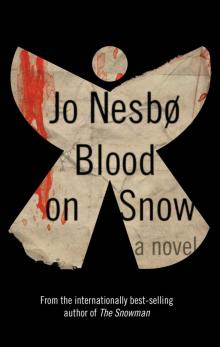 Blood on Snow: A novel
Blood on Snow: A novel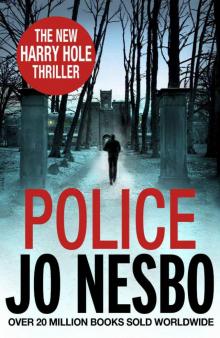 Police: A Harry Hole thriller (Oslo Sequence 8)
Police: A Harry Hole thriller (Oslo Sequence 8) Doctor Proctor's Fart Powder: The Great Gold Robbery
Doctor Proctor's Fart Powder: The Great Gold Robbery Bubble in the Bathtub
Bubble in the Bathtub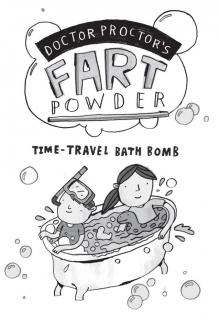 Doctor Proctor's Fart Powder: Time-Travel Bath Bomb
Doctor Proctor's Fart Powder: Time-Travel Bath Bomb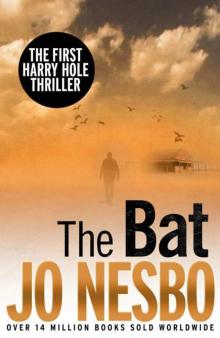 The Bat
The Bat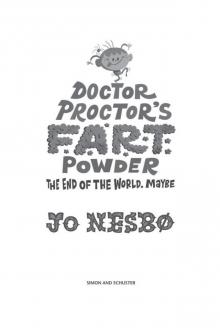 Doctor Proctor's Fart Powder: The End of the World. Maybe.
Doctor Proctor's Fart Powder: The End of the World. Maybe.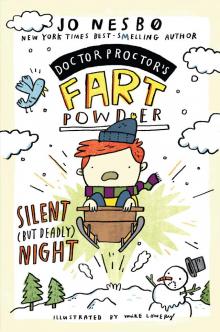 Silent (but Deadly) Night
Silent (but Deadly) Night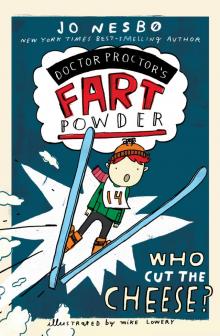 Who Cut the Cheese?
Who Cut the Cheese? Headhunters
Headhunters The Jealousy Man and Other Stories
The Jealousy Man and Other Stories Harry Hole Mysteries 3-Book Bundle
Harry Hole Mysteries 3-Book Bundle The Thirst
The Thirst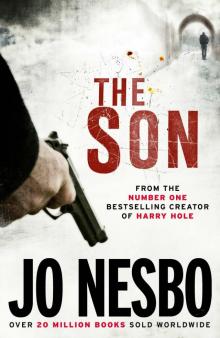 The Son
The Son The Redeemer
The Redeemer The Kingdom
The Kingdom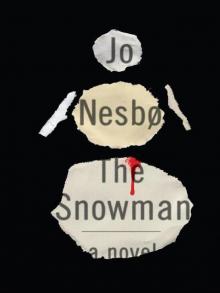 The Snowman
The Snowman The Redbreast
The Redbreast Phantom
Phantom Macbeth
Macbeth The Leopard
The Leopard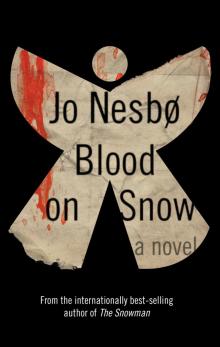 Blood on Snow
Blood on Snow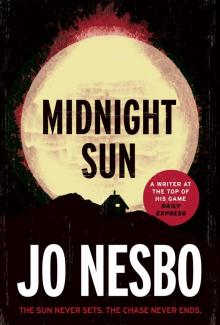 Midnight Sun
Midnight Sun The Redbreast (Harry Hole)
The Redbreast (Harry Hole)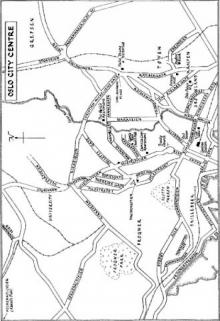 The Devil's Star
The Devil's Star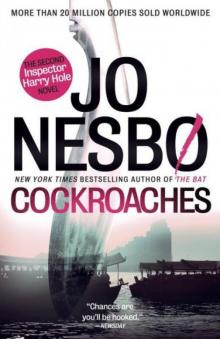 Cockroaches
Cockroaches The Magical Fruit
The Magical Fruit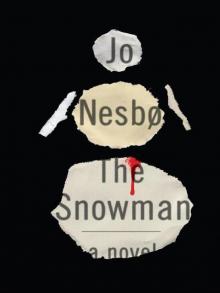 The Snowman: A Harry Hole Novel
The Snowman: A Harry Hole Novel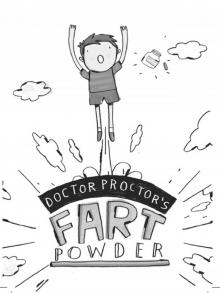 Doctor Proctor's Fart Powder
Doctor Proctor's Fart Powder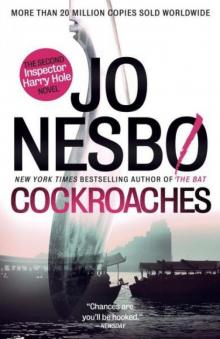 The Cockroaches
The Cockroaches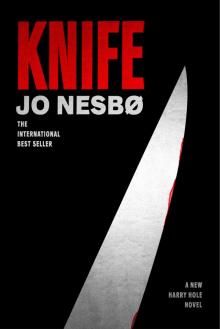 Knife
Knife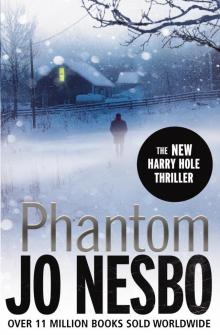 Phantom hh-9
Phantom hh-9 The Redbreast hh-3
The Redbreast hh-3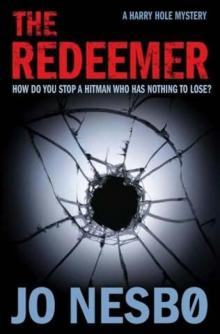 The Redeemer hh-6
The Redeemer hh-6 The Leopard hh-8
The Leopard hh-8 The Leopard: An Inspector Harry Hole Novel
The Leopard: An Inspector Harry Hole Novel The Great Gold Robbery
The Great Gold Robbery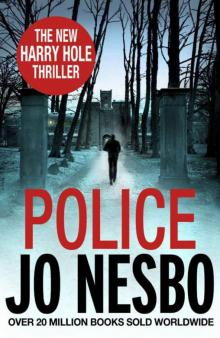 Police hh-10
Police hh-10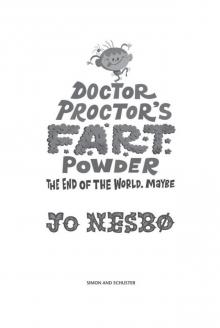 The End of the World. Maybe
The End of the World. Maybe The Thirst: Harry Hole 11
The Thirst: Harry Hole 11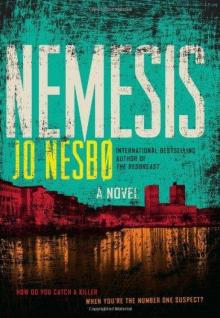 Nemesis - Harry Hole 02
Nemesis - Harry Hole 02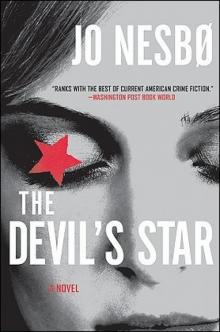 The Devil's star hh-5
The Devil's star hh-5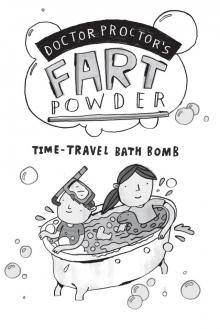 Time-Travel Bath Bomb
Time-Travel Bath Bomb